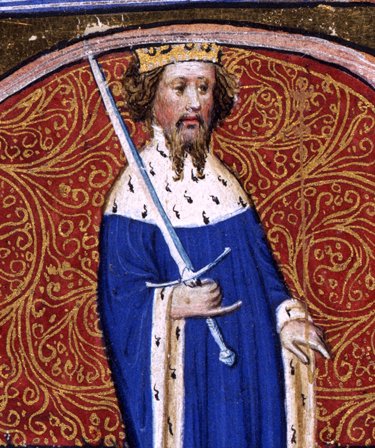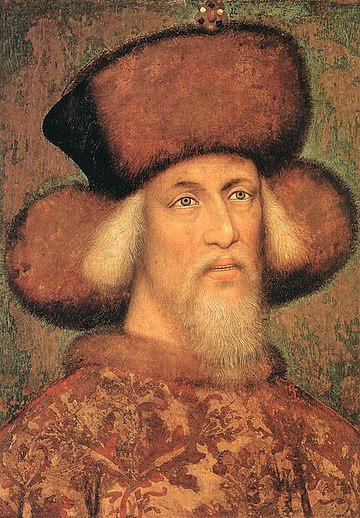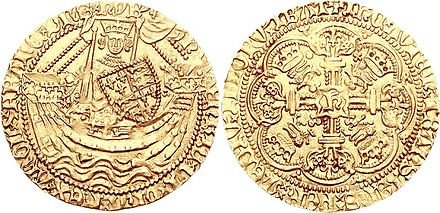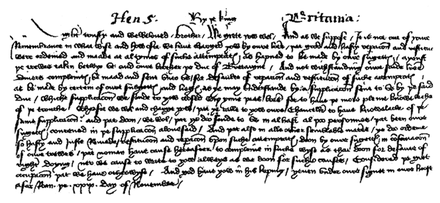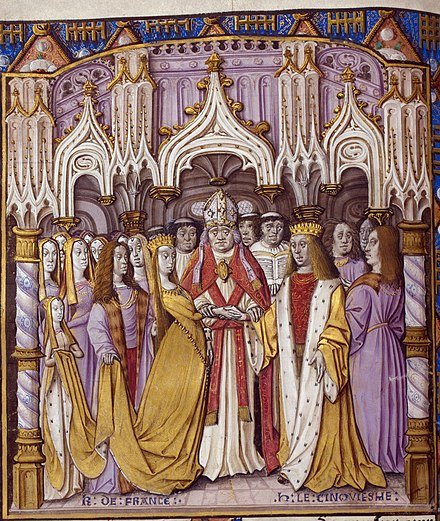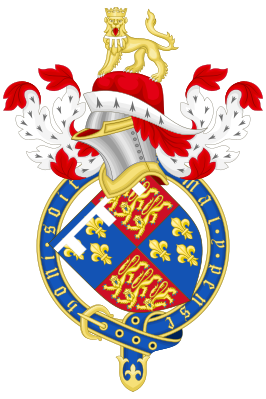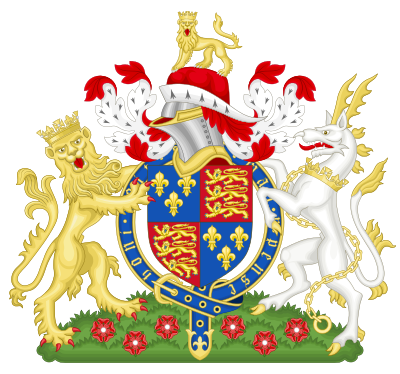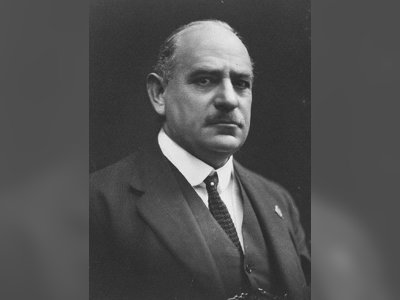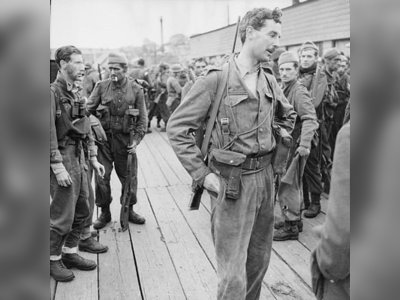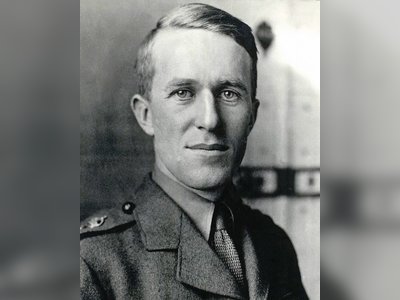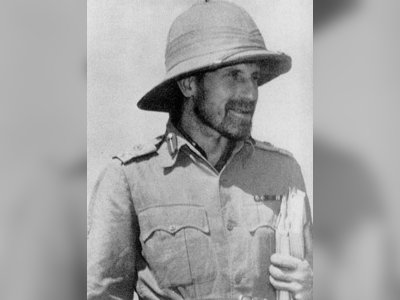British Heritage
Remember, Cherish, Learn.
beta
Henry V of England
A Warrior King and the Architect of England's Military Dominance - Contribution to British Heritage.
Henry V of England, also known as Henry of Monmouth, was a formidable monarch who ruled England from 1413 until his untimely death in 1422. Despite his short reign, Henry's military prowess and successes during the Hundred Years' War against France elevated England to a position of strength and prominence in Europe. Immortalized in William Shakespeare's "Henriad" plays, Henry V is celebrated as one of the greatest warrior kings of medieval England, leaving behind a legacy that shaped the course of British history.
Born on 16 September 1386 at Monmouth Castle in Wales, Henry V was the son of Henry of Bolingbroke, later known as Henry IV of England, and Mary de Bohun. His paternal grandfather was the influential John of Gaunt, a son of King Edward III. In his early years, Henry gained military experience by participating in conflicts such as the Welsh revolt led by Owain Glyndŵr and the Battle of Shrewsbury against the powerful Percy family of Northumberland.
Henry's involvement in England's government increased due to his father's declining health. However, tensions between father and son created political conflicts, leading to Henry's removal from the council by his father. Upon Henry IV's death in 1413, Henry V assumed the throne and took control of the country's affairs, asserting England's claim to the French throne, a longstanding issue that had fueled the Hundred Years' War.
In 1415, Henry V launched a military campaign against France, marking the onset of the Hundred Years' War (1337–1453). His most renowned military achievement occurred at the Battle of Agincourt in 1415, where, despite being outnumbered and exhausted, Henry's forces secured a decisive victory over the French. This triumph, along with his strategic conquests, allowed him to gain control over large parts of France, including Normandy, establishing English rule in the region for the first time in decades.
In the midst of war, Henry V skillfully engaged in diplomacy. In 1416, he secured control of the English Channel by driving out the Genoese allies of the French. He also negotiated with Emperor Sigismund of Hungary to detach him from supporting France, culminating in the Treaty of Canterbury, which formed a short-lived alliance between England and the Holy Roman Empire.
In 1419, after months of negotiation, the Treaty of Troyes was signed, recognizing Henry V as the heir and regent of France. In an effort to solidify this alliance and secure his claim to the French throne, Henry married Catherine of Valois, the daughter of King Charles VI of France. The union seemed poised to unite England and France under one monarch, but fate had other plans.
Henry V's reign was marked by successful military campaigns, firm governance, and strategic alliances. He skillfully navigated domestic politics, restoring peace and reconciling former enemies. The victory at Agincourt and the Treaty of Troyes elevated England's international standing and positioned Henry as a key player in European politics.
Tragically, Henry V's life was cut short by dysentery, weakening him significantly during the siege of Cosne-sur-Loire. He died on 31 August 1422, at the age of 35, leaving behind a young son, Henry VI, who succeeded him as King of England.
Henry V's accomplishments as a warrior king and his vision for a united England and France were profound and far-reaching. Though he did not live to see his dream realized, his legacy as a great military leader and statesman remains firmly ingrained in British history. His life and achievements continue to inspire admiration and reverence, making him an enduring figure in the annals of British heritage.
Early Life and Rise to Power
Born on 16 September 1386 at Monmouth Castle in Wales, Henry V was the son of Henry of Bolingbroke, later known as Henry IV of England, and Mary de Bohun. His paternal grandfather was the influential John of Gaunt, a son of King Edward III. In his early years, Henry gained military experience by participating in conflicts such as the Welsh revolt led by Owain Glyndŵr and the Battle of Shrewsbury against the powerful Percy family of Northumberland.
Henry's involvement in England's government increased due to his father's declining health. However, tensions between father and son created political conflicts, leading to Henry's removal from the council by his father. Upon Henry IV's death in 1413, Henry V assumed the throne and took control of the country's affairs, asserting England's claim to the French throne, a longstanding issue that had fueled the Hundred Years' War.
Military Triumphs in the Hundred Years' War
In 1415, Henry V launched a military campaign against France, marking the onset of the Hundred Years' War (1337–1453). His most renowned military achievement occurred at the Battle of Agincourt in 1415, where, despite being outnumbered and exhausted, Henry's forces secured a decisive victory over the French. This triumph, along with his strategic conquests, allowed him to gain control over large parts of France, including Normandy, establishing English rule in the region for the first time in decades.
Peace and Alliance with France
In the midst of war, Henry V skillfully engaged in diplomacy. In 1416, he secured control of the English Channel by driving out the Genoese allies of the French. He also negotiated with Emperor Sigismund of Hungary to detach him from supporting France, culminating in the Treaty of Canterbury, which formed a short-lived alliance between England and the Holy Roman Empire.
In 1419, after months of negotiation, the Treaty of Troyes was signed, recognizing Henry V as the heir and regent of France. In an effort to solidify this alliance and secure his claim to the French throne, Henry married Catherine of Valois, the daughter of King Charles VI of France. The union seemed poised to unite England and France under one monarch, but fate had other plans.
Legacy and Death
Henry V's reign was marked by successful military campaigns, firm governance, and strategic alliances. He skillfully navigated domestic politics, restoring peace and reconciling former enemies. The victory at Agincourt and the Treaty of Troyes elevated England's international standing and positioned Henry as a key player in European politics.
Tragically, Henry V's life was cut short by dysentery, weakening him significantly during the siege of Cosne-sur-Loire. He died on 31 August 1422, at the age of 35, leaving behind a young son, Henry VI, who succeeded him as King of England.
Henry V's accomplishments as a warrior king and his vision for a united England and France were profound and far-reaching. Though he did not live to see his dream realized, his legacy as a great military leader and statesman remains firmly ingrained in British history. His life and achievements continue to inspire admiration and reverence, making him an enduring figure in the annals of British heritage.
- Henry V of Englanden.wikipedia.org
